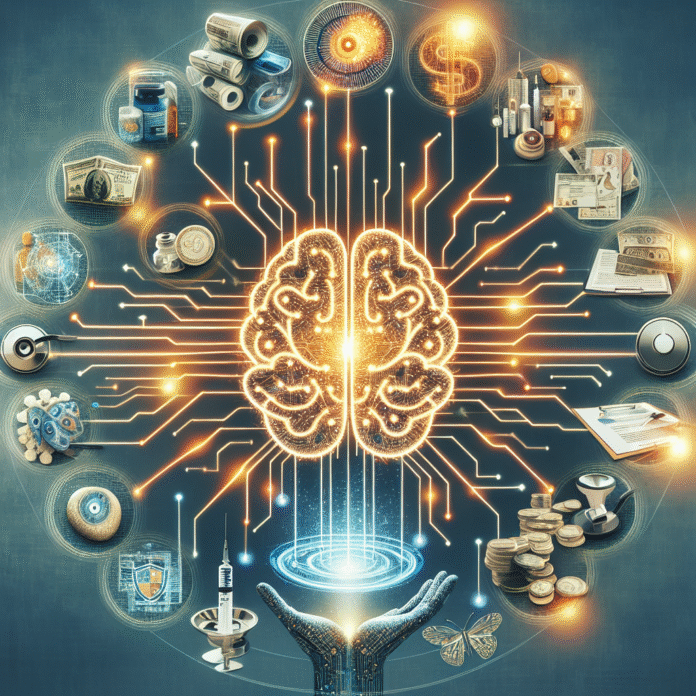Artificial Intelligence: Revolutionizing Industries from Healthcare to Finance
In the last decade, Artificial Intelligence (AI) has transitioned from a futuristic concept to a pivotal technology reshaping industries across the globe. Its capacity to analyze vast datasets, recognize patterns, and automate tasks has catalyzed profound changes in sectors like healthcare and finance. This article explores how AI is revolutionizing these industries, enhancing efficiency, facilitating innovation, and ultimately improving quality of life.
AI in Healthcare
The healthcare sector has embraced AI in various ways, transforming patient care, diagnosis, and operational efficiency.
1. Enhanced Diagnostics
AI algorithms can analyze medical images (such as X-rays, MRIs, and CT scans) with impressive accuracy. For instance, deep learning models have been developed to detect conditions such as pneumonia and tumors, sometimes outperforming seasoned radiologists. By reducing human error and speeding up diagnoses, AI not only improves patient outcomes but also alleviates the burden on healthcare professionals.
2. Personalized Treatment Plans
AI enables the customization of treatment plans based on individual patient data. Machine learning algorithms can analyze genetic information alongside vast datasets to identify the most effective treatments for specific patient profiles. This tailored approach enhances therapeutic efficacy and minimizes the risk of adverse effects.
3. Predictive Analytics
By examining trends and patterns in patient data, AI can predict disease outbreaks, aid in early intervention strategies, and optimize resource allocation. For example, AI models have been instrumental in predicting the spread of infectious diseases, thus allowing healthcare providers to prepare and respond promptly.
4. Operational Efficiency
AI streamlines administrative tasks such as scheduling, billing, and patient record management. Chatbots and virtual assistants help handle patient inquiries, freeing up healthcare workers to focus on more critical tasks. This automation not only enhances productivity but also minimizes operational costs.
AI in Finance
The finance industry has also experienced significant transformations due to AI, impacting areas from risk assessment to customer service.
1. Risk Management and Fraud Detection
Financial institutions use AI to analyze transactions in real time, identifying unusual patterns indicative of fraudulent activity. Machine learning algorithms can recognize and adapt to new threats quickly, significantly reducing the potential for fraud while protecting customers’ assets.
2. Algorithmic Trading
AI-driven algorithms analyze market trends and historical data at speeds unattainable by human traders. These systems can execute trades based on complex strategies and predictive models, maximizing returns while minimizing risks. This reliance on AI for trading strategies has made the financial markets more efficient.
3. Customer Service Automation
Banks and financial services have integrated AI-powered chatbots and virtual assistants to handle customer queries. These tools not only provide immediate responses but can also learn from interactions, improving their effectiveness over time and significantly enhancing customer experience.
4. Personalized Financial Advice
AI analyses consumer data to offer personalized financial advice and investment strategies. Robo-advisors provide investment management services tailored to individual risk tolerance and financial goals, making financial planning accessible for a broader audience.
Challenges and Ethical Considerations
While the benefits of AI in healthcare and finance are significant, challenges remain. Concerns about data privacy, algorithmic bias, and the potential for job displacement are critical issues that industries must address. Ethical considerations around transparency and accountability in AI systems are paramount to maintain public trust.
Moreover, the reliance on data raises questions about fairness and access. Ensuring that AI systems do not perpetuate existing biases and that they are accessible to all individuals is essential for equitable progress.
Conclusion
Artificial Intelligence is undeniably revolutionizing industries, with healthcare and finance at the forefront of this transformation. As AI continues to evolve, its integration across various sectors promises to enhance efficiency, improve outcomes, and create innovative solutions that benefit society as a whole. However, it is crucial to navigate the ethical landscape and ensure that these advancements uphold the values of fairness, transparency, and equity. The future lies in harnessing AI responsibly, ultimately improving the human experience in every sphere of life.







